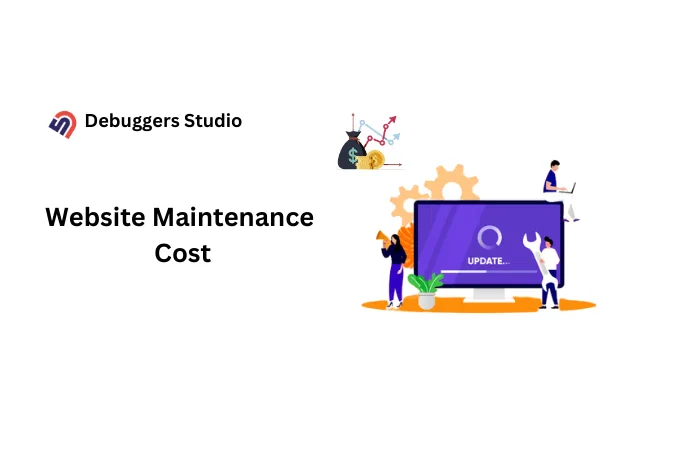Acupuncture is a popular alternative medicine practice. It gaining more popularity in recent years. With the rise of technology, many acupuncturists have created websites to make it easier for their patients to find them.
However, with the convenience of having a website comes the responsibility to keep it secure.
Now a days, Cybersecurity threats are a growing concern. Acupuncturists need to take steps to protect their websites and prevent data breaches.

In this guide, we’ll break down the steps to increase your website’s safety without getting too technical.
Improve Your Acupuncturist Website Security in Easy 12 Steps
You can make sure that your acupuncturist website stays safe and secure by following the steps below-
1. Understanding Website Security Threats
Understanding website security threats is the first step in protecting your acupuncture website. Some Common threats are : malware infections, hacking attempts, and data breaches. Such breaches can damage your clinic’s reputation and compromise patient trust.
2. Conduct Regular Security Audits

To improve the security of your acupuncturist website, it is important to conduct regular security audits. A security audit is a check-up to see how secure your website is. It helps find weaknesses that hackers might use to break in.
Regular security audits help you to identify and address security issues before they turn into major security breaches.
During the audit, you should assess the security of your website’s software, plugins, hosting environment, and user accounts. You should also review your website’s access controls, backup procedures, and disaster recovery plans.
It is recommended that you conduct a security audit at least once a year, or whenever there are major changes to your website or hosting environment.
Do you want to make sure your website is safe? You don’t have to do it yourself – let the experts handle it for you!
Hire Debuggers Studio!
3. Secure Hosting and Infrastructure

Choosing a reliable hosting provider is super important. Look for one that offers strong security measures and supports SSL certificates to encrypt data transmission. Regularly update your server software and configurations to fix vulnerabilities and protect against cyberattacks.
4. Use Strong Passwords for Login
One of the simplest and most effective ways to improve website security is using strong passwords for login.
Strong passwords are typically at least eight characters long and include a mix of uppercase and lowercase letters, numbers, and symbols.
Avoid using easily guessable information such as your name, birthdate, or common words. Consider using a password management tool to store and manage all of your login information securely.
5. Limit Login Attempts
This means restricting the number of times someone can attempt to login before being temporarily or permanently blocked. This is especially important if you have a login page for clients to access their personal information.
When you limit login attempts, you can prevent brute force attacks, where hackers attempt to guess your password by trying different combinations of characters.
6. Implement Two-factor Authentication
Two-factor authentication is when users have to provide two different type of identification to log into their accounts. This prevents unauthorized access to important information like patient records and financial data.
There are various options for implementing two-factor authentication, such as using a mobile app or receiving a text message with a unique code.
7. Keep Website Software Up-to-date
This includes updating your content management system, plugins, and theme. Outdated software can cause security threats, such as hacking and malware attacks.
By regularly updating your website software, you make sure that any security issues are fixed and potential weaknesses are taken care of.
8. Regularly Backup Website Data

Another best ways to improve your website’s security is to regularly backup your website data. By doing this, you can restore your website quickly in case of any security breaches, accidental deletions, or other unexpected situation.
It is recommended to perform backups at least once a week.
9. Use SSL Encryption
SSL encryption helps to keep your website safe by creating a secure connection between your browser and the user’s web browser. This makes it harder for hackers to steal any important information.
This encryption technology protects your patients’ personal and financial data.
10. Secure Payment Processing Methods

For your acupuncturist website, one of the most important considerations is security.
With the rise of online transactions, it’s essential to ensure that your website’s payment processing methods are secure and reliable.
In this regard, it’s important to choose payment processing methods that have strong security features. These features may include data encryption, fraud detection, and multi-factor authentication.
11. Monitor Website Activity Logs
Activity logs contain information about user behavior, login attempts, changes to website content, and any suspicious activity.
Regularly monitoring these logs can help identify potential security threats and take appropriate action to prevent them. Analyzing website activity logs can also provide insights about how users are interacting with the website.
It is important to ensure that activity logs are enabled and configured properly to capture relevant data.
12. Compliance with Data Protection Regulations
As a healthcare practitioner, it is essential to safeguard the privacy and confidentiality of your patient’s data. Compliance with data protection regulations like HIPAA and GDPR is mandatory for all healthcare professionals who handle patient data.
Failure to comply with these regulations could result in severe consequences, including legal penalties, loss of reputation, and loss of business.
Articles You May Find Useful
These 12 steps are really important for acupuncturists to make their websites secure so that their clients’ private information stays safe and they have a good reputation online.






